View the original article: https://www.prnewswire.com/news-releases/supporting-your-childs-mental-health-as-they-return-to-school-during-the-covid-19-crisis-301108728.html
UNIONTOWN, Pa., Aug. 11, 2020 /PRNewswire/ — Chestnut Ridge Counseling Services, (CRCSI) one of the larger providers of mental health services in Western Pennsylvania, is ready to help your child go back to school with less anxiety during the Covid-19 crisis. Children of all ages are seen at CRCSI by our therapists and/or Child and Adolescent psychiatrists either via tele-therapy or in person. New Directions school (a program at CRCSI) is an option for children suffering with moderate to severe mental health issues. It is the only licensed Private Academic School and Partial Hospitalization mental health treatment program in Fayette County, PA. For more information on New Directions please visit https://www.crcsi.org/services/children/new-directions/ or call 724-434-1014 and ask for Michelle DeMoss, Program Manager.
Dr. Eleni Maneta, Child and Adolescent Psychiatrist and Medical Director at CRCSI’s New Directions school reports that, “children with pre-existing mental health conditions, may struggle more with returning to school during the ongoing COVID-19 pandemic. For those children, a therapeutic school like New Directions may be a better option.” Dr. Maneta also added, “New Directions is a year-round, highly structured, therapeutic program that provides a unique combination of specialized mental health treatment and comprehensive educational services. In this setting, children can receive all the necessary support to start their recovery process, while at the same time completing their education.”
According to Dr. Padmaja Chilakapati, Child and Adolescent Psychiatrist at CRCSI, “Children may feel nervous or scared to return to school. You can help them feel at ease by going over some of the changes they may expect at school such as needing to wear masks for protection from their friends’ coughs, maintaining distance from each other and washing hands frequently or sanitizing hands prior to touching their faces. Reassure your child about the safety measures that are in place to keep them and their teachers safe.” Dr. Chilakapati also suggests that parents should approach all conversations with calmness and empathy, stating that you know that your child is feeling anxious about the corona virus, encourage them to talk about their anxieties that it’s healthy to talk about what worries them and how they feel about it.
With a staff of 7 Psychiatrists, Certified Nurse Practitioners and therapists, Chestnut Ridge Counseling Services has been the primary provider of mental healthcare for the past 55 years in Fayette County. Staff takes to heart the motto “We treat each person as if they are family“.
SOURCE Chestnut Ridge Counseling Services



